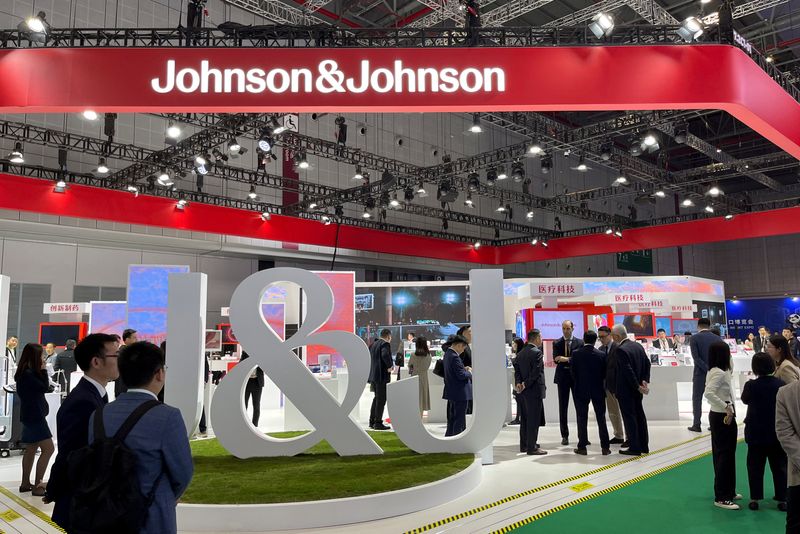
By Bhanvi Satija and Puyaan Singh
(Reuters) -Johnson & Johnson (JNJ) said on Monday it will buy neurological drugmaker Intra-Cellular Therapies (ITCI) for $14.6 billion, its biggest deal in at least two years, boosting its presence in the market for brain disease treatments.
The deal is meant to help J&J boost its growth in the drugs and medical devices businesses after it spun off the consumer health unit in 2023. The company’s blockbuster psoriasis drug Stelara is also set to face competition from several biosimilar versions in the U.S. this year.
The announcement comes as the industry gathers for its annual premium conference, JPMorgan Healthcare Conference, in San Francisco. Healthcare dealmakers expect a resurgence of deals exceeding $10 billion due to the potential for less antitrust scrutiny under President-elect Donald Trump.
J&J has offered to buy each share of Intra-Cellular for $132, representing a 39% premium to the stock’s closing price on Friday.
Shares of Intra-Cellular rose 35% to $128 in premarket trading, while J&J was flat.
J&J would gain access to Intra-Cellular’s already-approved therapy, Caplyta, to treat schizophrenia and depressive episodes associated with bipolar disorder in the United States.
Intra-Cellular is also seeking an expanded regulatory approval in the U.S. for Caplyta as an add-on therapy for major depressive disorder. The treatment brought in $481.3 million in sales in the first nine months of 2024. Analysts expect the therapy to bring in more than $1 billion in sales next year, according to data compiled by LSEG.
J&J will also gain access to Intra-Cellular’s experimental therapy, ITI-1284, being developed for the treatment of generalized anxiety disorder and Alzheimer’s-related psychosis and agitation.
The healthcare giant’s existing portfolio of neurological disorder treatments includes its nasal spray Spravato, which is approved as a supplemental therapy for depression, and Concerta for attention deficit hyperactivity disorder.
J&J said it expects to fund the latest transaction, likely to close later this year, through a combination of cash on hand and debt.
Last year, the company acquired Numab’s skin disorder drug for $1.25 billion and bought drug developer Proteologix for $850 million. It also acquired heart device maker Shockwave Medical in a $13.1 billion deal.
(Reporting by Puyaan Singh and Bhanvi Satija in Bengaluru; Editing by Shilpi Majumdar)

